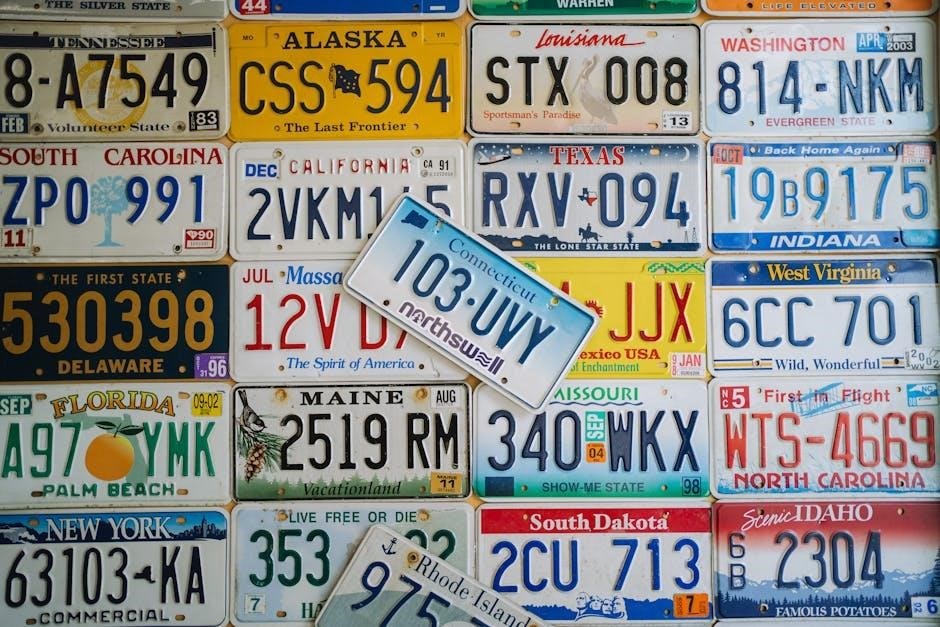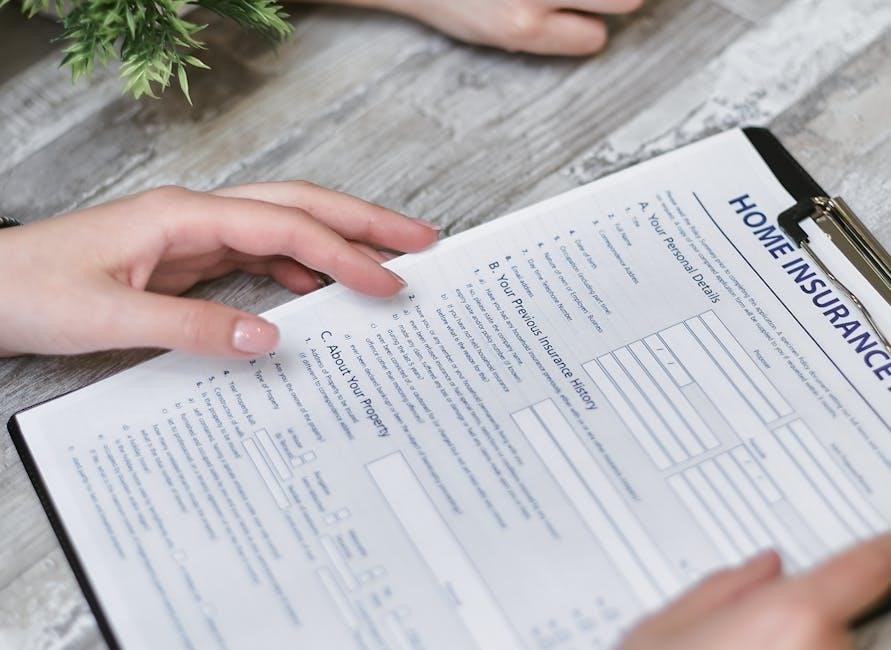to guide the application process effectively always․
Eligibility Criteria for Hardship License
To be eligible for a hardship license in Louisiana, individuals must meet specific criteria, including demonstrating a compelling need for driving privileges, such as traveling to work, school, or receiving medical treatment․ The
OMV
requires applicants to provide proof of identification, residency, and a valid Social Security number․ Additionally, applicants must not have any outstanding warrants or suspensions on their driving record․ The
eligibility criteria
also vary depending on the reason for the license suspension, such as a DWI conviction, which may require the installation of an ignition interlock device․ It is essential to review the eligibility criteria carefully to ensure that all requirements are met before submitting an application․ The OMV website provides detailed information on the eligibility criteria and required documents, making it easier for applicants to navigate the process and determine their eligibility for a hardship license in Louisiana․ The criteria are subject to change, so it is crucial to verify the information regularly․

Application Process for Hardship License
Applicants must file forms with the OMV, paying fees, and submitting required documents, using online
portals
for a streamlined process in Louisiana always․
Required Documents for Hardship License Application
To apply for a hardship license in Louisiana, applicants must provide specific documents, including a valid form of identification, proof of residency, and a court order, which can be obtained through the
OMV website
or by visiting a local office․ The required documents may vary depending on the reason for the license suspension, so it is essential to check with the OMV for the most up-to-date information․ Additionally, applicants may need to provide proof of insurance, which can be done by filing an
SR-22 form
with the OMV․ This form is typically required for drivers who have been convicted of a DUI or other serious traffic offense․ By providing the necessary documents, applicants can ensure a smooth and efficient application process for their hardship license․ The OMV website provides a list of required documents, making it easier for applicants to prepare and submit their applications․

Reinstatement Fees and Costs Associated with Hardship Licenses
Reinstatement fees and costs include court costs, attorney fees, and SR-22 insurance, which vary depending on the offense, using
online payment systems
for convenience always․
SR-22 Form Filing and Ignition Interlock Device Installation
To obtain a hardship license, individuals must file an SR-22 form with the OMV, which proves they have the required insurance coverage, and this form is usually filed by the insurance company on behalf of the driver․ The SR-22 form is a certificate of financial responsibility that shows the driver has the necessary insurance to operate a vehicle․ In addition to filing the SR-22 form, individuals who have been convicted of a DWI may also be required to install an ignition interlock device (IID) in their vehicle․ The IID is a device that prevents the vehicle from starting if the driver’s blood alcohol concentration is above a certain level․ The cost of installing and maintaining the IID is typically borne by the driver, and it is an additional requirement for individuals who want to obtain a hardship license․ The OMV provides guidance on the SR-22 form filing and IID installation process, and individuals can contact them for more information․ The SR-22 form and IID installation are important requirements for obtaining a hardship license in Louisiana․

Restrictions on Hardship License Usage
Hardship licenses have restrictions, including no commercial use and limited driving purposes always․
Consequences of Crime Committed Outside Louisiana on Hardship License
Committing a crime outside Louisiana can have significant consequences on a hardship license․ According to the information provided, if the crime was not committed in Louisiana, it may affect the eligibility for a hardship license․ The OMV will review the circumstances of the crime and determine whether it affects the applicant’s eligibility․ It is essential to note that the OMV has the authority to deny a hardship license if the crime committed outside Louisiana is deemed serious enough․ The applicant must provide detailed information about the crime, including the nature of the offense and the jurisdiction where it was committed․ The OMV will then assess the information and make a decision regarding the hardship license application․ The consequences of a crime committed outside Louisiana can be severe, and it is crucial to understand the potential impact on a hardship license application․ The applicant should be prepared to provide all necessary documentation and information to support their application․

Importance of Affordability for Hardship License Applicants
Affordability is crucial for applicants, ensuring they can pay fees, using
online payment
methods, and covering costs associated with the application process always effectively․
Compelling Need for Driving Privileges for Necessities of Life
To qualify for a hardship license, applicants must demonstrate a compelling need for driving privileges, such as traveling to work, school, or receiving medical treatment, using their vehicle as a necessity of life․
Individuals may need to provide documentation, such as a letter from their employer or a medical professional, to support their claim of a compelling need․
The Louisiana OMV will review each application on a case-by-case basis, considering the individual’s specific circumstances and the potential impact on their daily life․
Applicants must also meet certain eligibility criteria, such as having a valid Louisiana driver’s license and not having any other suspensions or revocations on their record․
The OMV may also consider other factors, such as the applicant’s driving history and any previous convictions․
By demonstrating a compelling need for driving privileges, applicants can increase their chances of being approved for a hardship license, allowing them to continue driving for necessities of life․
The process involves filing an application and providing required documents to the OMV for review and approval, ensuring the applicant can drive safely and responsibly․